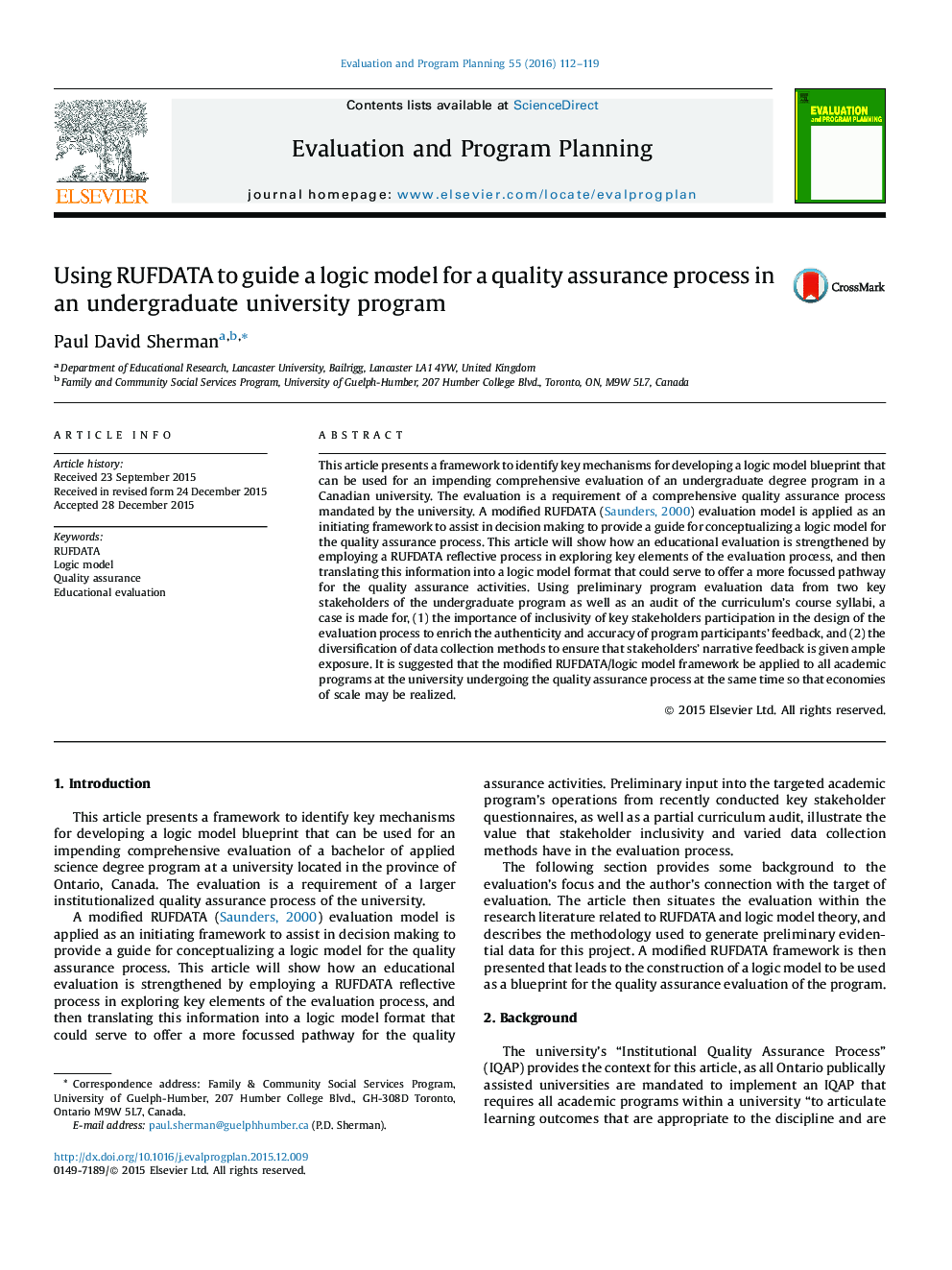| Article ID | Journal | Published Year | Pages | File Type |
|---|---|---|---|---|
| 6792895 | Evaluation and Program Planning | 2016 | 8 Pages |
Abstract
This article presents a framework to identify key mechanisms for developing a logic model blueprint that can be used for an impending comprehensive evaluation of an undergraduate degree program in a Canadian university. The evaluation is a requirement of a comprehensive quality assurance process mandated by the university. A modified RUFDATA (Saunders, 2000) evaluation model is applied as an initiating framework to assist in decision making to provide a guide for conceptualizing a logic model for the quality assurance process. This article will show how an educational evaluation is strengthened by employing a RUFDATA reflective process in exploring key elements of the evaluation process, and then translating this information into a logic model format that could serve to offer a more focussed pathway for the quality assurance activities. Using preliminary program evaluation data from two key stakeholders of the undergraduate program as well as an audit of the curriculum's course syllabi, a case is made for, (1) the importance of inclusivity of key stakeholders participation in the design of the evaluation process to enrich the authenticity and accuracy of program participants' feedback, and (2) the diversification of data collection methods to ensure that stakeholders' narrative feedback is given ample exposure. It is suggested that the modified RUFDATA/logic model framework be applied to all academic programs at the university undergoing the quality assurance process at the same time so that economies of scale may be realized.
Related Topics
Health Sciences
Medicine and Dentistry
Public Health and Health Policy
Authors
Paul David Sherman,
